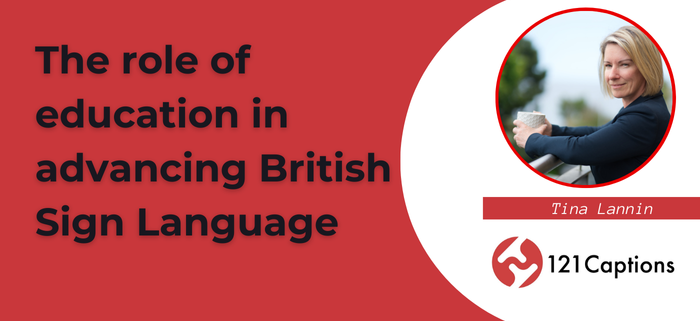The role of education in advancing British Sign Language
British Sign Language (BSL) has come a long way, not just as a form of communication but as a legitimate language deserving of a prominent place in educational settings.
This journey involves overcoming challenges, celebrating triumphs, and advocating for inclusivity. In this blog post, we delve into the pivotal role of education in shaping the narrative of BSL, along with the advocacy efforts that have propelled it into the spotlight.
Challenges in integrating BSL into education
Recognition and Understanding
One of the primary challenges faced in the integration of BSL into educational settings is the lack of recognition and understanding. Despite its status as a rich and expressive language, there has historically been a tendency to perceive sign languages as inferior or less sophisticated than spoken languages. Overcoming these misconceptions is crucial for fostering a truly inclusive educational environment.
This will hopefully change, as we have talked about recently with the addition of British Sign Language as a GCSE option.
Limited Resources and Training
Educational institutions often face constraints in terms of resources and trained professionals proficient in BSL. This shortage hampers the effective teaching and learning of BSL, limiting its accessibility.
Investing in training programs for educators and providing adequate resources is essential for creating an inclusive learning experience.
Triumphs in BSL education
Curriculum Integration
One significant triumph in recent years is the increasing integration of BSL into educational curricula. Recognizing BSL as a legitimate language has led to its inclusion in language programs and curricular offerings. This not only validates the language but also provides students with the opportunity to learn and appreciate the richness of BSL.
Deaf Studies Programs
The establishment of Deaf Studies programs represents another triumph in BSL education. These programs focus on the cultural, historical, and linguistic aspects of Deaf communities, providing a comprehensive understanding of BSL. They contribute to breaking down stereotypes and fostering a deeper appreciation for the diversity within the Deaf community.
Advocacy for BSL
Legal Recognition
Advocacy efforts have played a crucial role in securing legal recognition for BSL. The official recognition of BSL as a language in its own right is a significant milestone that opens doors for increased accessibility and equal opportunities for Deaf individuals.
Promoting Inclusive Policies
Advocates continue to push for inclusive policies that mandate the incorporation of BSL in various aspects of public life, including education. These policies aim to break down barriers and ensure that Deaf individuals have equal access to educational resources, information, and opportunities.
Raising Awareness
Advocacy also involves raising awareness about the linguistic and cultural richness of British Sign Language. By dispelling myths and stereotypes, advocates contribute to creating an environment where BSL is celebrated and respected.
The importance of inclusive practices
Inclusive practices in education are crucial for ensuring that BSL is not just taught but embraced as a valuable form of communication. This involves creating accessible learning materials, providing support services for Deaf students, and fostering a culture of understanding and acceptance.
In conclusion, the journey of British Sign Language in education involves both challenges and triumphs. The recognition of BSL as a language, the integration into curricula, and advocacy efforts for legal recognition are all steps towards a more inclusive and accessible educational landscape.
As we continue on this journey, it is essential to champion inclusive practices that celebrate the diversity and richness that BSL brings to the educational experience.




Leave a Reply
Want to join the discussion?Feel free to contribute!